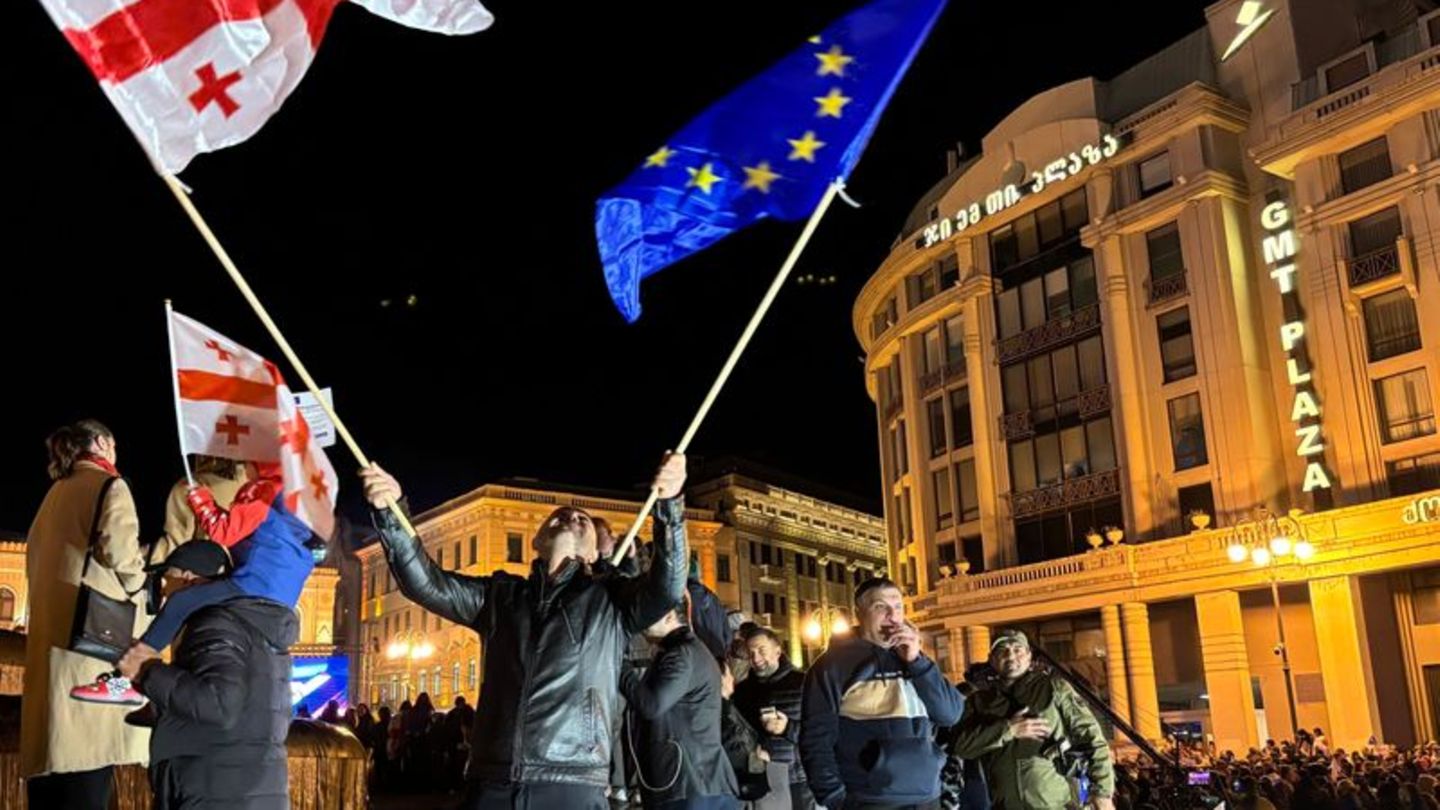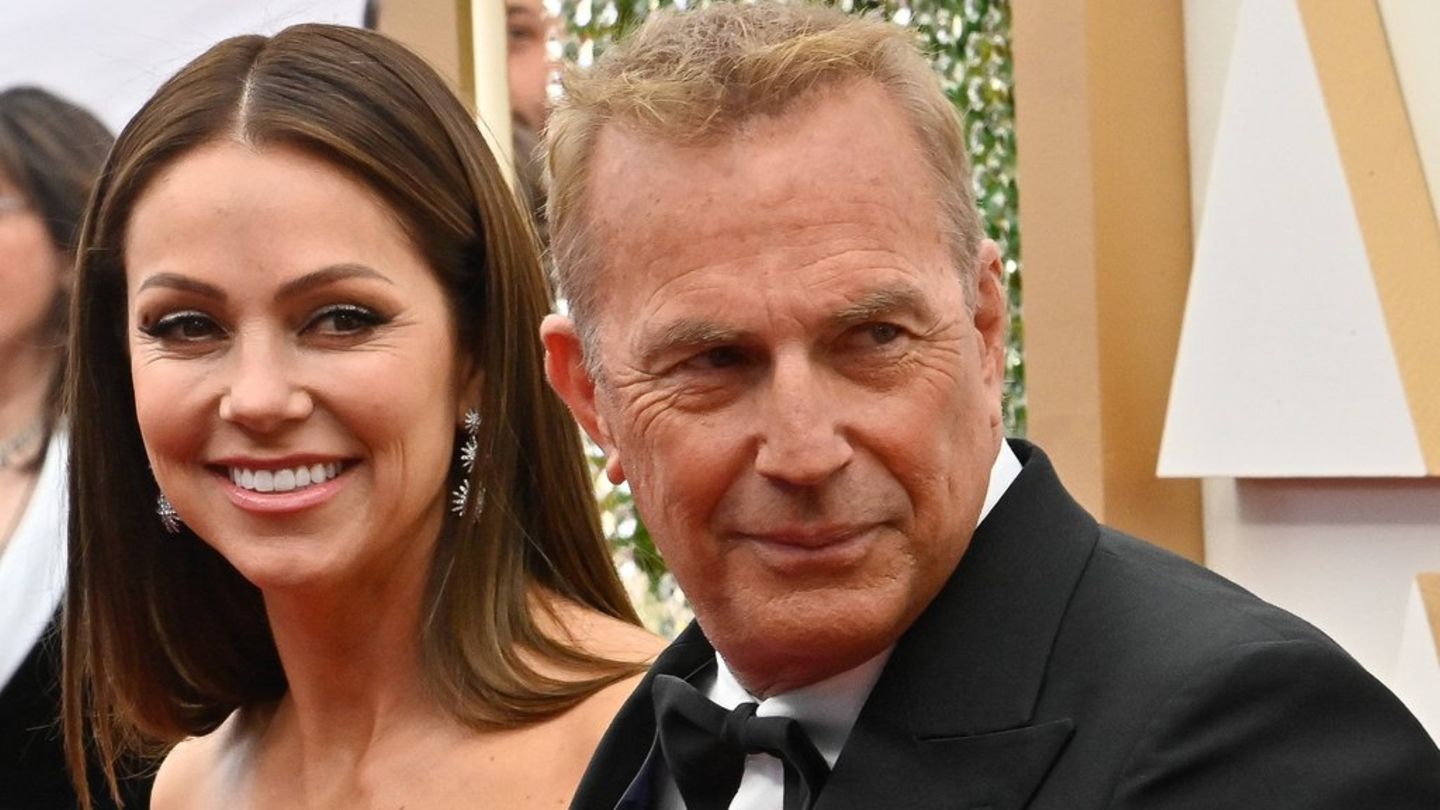Georgia in the South Caucasus elects a new parliament. This depends on whether the state will orient itself towards the West or towards Russia in the future. The country with EU candidate status is divided.
In the Black Sea Republic of Georgia, people will elect a new parliament this Saturday. The vote is seen as pointing the way for the future of the country. A rapprochement with the EU or more cooperation with Russia is possible. Around 3.5 million people are called to vote. The South Caucasus republic is a candidate for EU membership, but the process is currently on hold due to controversial laws.
The pro-Western opposition has formed four electoral alliances, but remains divided. The only thing they agree on is that the country should follow a European course. The Georgian Dream party, which has been in power since 2012, wants to remain in power. Surveys in the traditionally polarized country produced sometimes contradictory results and, according to experts, are unreliable. That’s why non-governmental organizations in particular have deployed many observers to monitor the vote. Election law experts have already complained about misuse of state resources by the ruling party.
The pro-European President Salome Zurabishvili has initiated a reform agenda, the Georgian Charter. Large parts of the opposition have signed it. Accordingly, if the opposition wins the election, it should form a “technical government” that will implement reforms and bring the country back on a European course. There should be early elections in a year. Because the opposition is divided, there are doubts in the country as to whether this plan will succeed.
Ruling party stirs up fears of war if opposition wins
Founded by billionaire Bidzina Ivanishvili, the Georgian Dream promises voters stability and peace. The party stands for a nationally conservative course and economic cooperation with Russia. Ivanishvili made his money there in the banking and raw materials sectors and also had a Russian passport for a long time. His party is fueling fears of a war with its big neighbor to the north if the opposition wins.
Ivanishvili blames the party of imprisoned ex-president Mikheil Saakashvili, the United National Movement, for the 2008 war with Russia. Moscow then recognized the breakaway Georgian regions of Abkhazia and South Ossetia as independent states. Georgia lost 20 percent of its territory. The United National Movement ruled until 2012 and is now the largest opposition party. Ivanishvili announced several times that he would ban them if the Georgian Dream achieved a two-thirds majority in parliament in the election.
The EU accuses the Georgian government of taking an anti-European course. The country on the Black Sea has been a candidate for EU membership since the end of 2023, but the process is on hold due to the adoption of controversial laws. The government had pushed through a Russian-style law intended to curb alleged foreign influence on civil society. It has also restricted the rights of sexual minorities.
Rallies before the election
The country is divided. Almost a week before the election, tens of thousands demonstrated in the capital Tbilisi for rapprochement with the EU. A few days later, tens of thousands also attended a ruling party rally in Tbilisi. The party organized buses that transported many people from distant regions of Georgia to the capital.
Electronic counting
New in this parliamentary election are electronic devices in the polling stations. They are used to identify those eligible to vote, to count votes and to determine and transmit provisional election results. The electoral commission stated several times that the devices were not connected to the Internet and that the secrecy of the vote was maintained.
Georgia has around 3.7 million inhabitants, and including citizens living abroad, 3.5 million people are eligible to vote. Polling stations are open from 8 a.m. to 8 p.m. (6 a.m. to 6 p.m. CEST). Significant results are expected late Saturday evening. After the vote, the Organization for Security and Cooperation in Europe (OSCE), which has 500 election observers on duty, also wants to assess the vote from a democratic perspective.
Source: Stern
I have been working in the news industry for over 6 years, first as a reporter and now as an editor. I have covered politics extensively, and my work has appeared in major newspapers and online news outlets around the world. In addition to my writing, I also contribute regularly to 24 Hours World.




